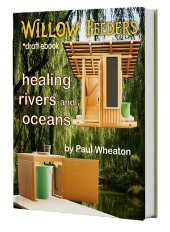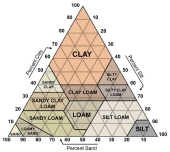
 9
9




I make a Maple Syrup instructional movie! Check it out HERE
SKIP books, get 'em while they're hot!!! Skills to Inherit Property
See me in a movie building a massive wood staircase:Low Tech Lab Movie

 4
4




 5
5




How permies.com works
What is a Mother Tree ?

 5
5




Christopher Weeks wrote:
How about using pet waste safely? I'm mostly thinking about cats, the waste from which can be dangerous, plus if you're using clay litter, that requires some thought.
 4
4




I make a Maple Syrup instructional movie! Check it out HERE
SKIP books, get 'em while they're hot!!! Skills to Inherit Property
See me in a movie building a massive wood staircase:Low Tech Lab Movie












 5
5




 4
4




Mike Haasl wrote: Recycle brown cardboard into:
- Sheet mulch material - 1/2 point
- More ideas???
Aspirations: She seeks wool and flax, considers a field and buys it, girds herself with strength, opens her mouth with wisdom, and does him good all the days of her life. (pieces of Proverbs 31, NKJV)




Mike Haasl wrote: Recycle brown cardboard into:
- Sheet mulch material - 1/2 point
- More ideas???
Visit Redhawk's soil series: https://permies.com/wiki/redhawk-soil
How permies.com works: https://permies.com/wiki/34193/permies-works-links-threads
 1
1




 1
1




Christopher Weeks wrote:I remembered seeing this old Instructable about making roof shingles from aluminum cans and got to wondering about other DIY recycling/upcycling options for aluminum. Do you want to include upcycling waste materials just generally instead of a few specific examples like newspaper seedling pots?
 3
3




George Yacus wrote:For recycling, plastic bottles can be turned into useful cordage with the right little jig.
 6
6




Being weird is easy. Making it mainstream is hard. Be brave! https://www.youtube.com/@healthygreenbrave
 1
1




I make a Maple Syrup instructional movie! Check it out HERE
SKIP books, get 'em while they're hot!!! Skills to Inherit Property
See me in a movie building a massive wood staircase:Low Tech Lab Movie
 2
2




Everyone takes awhile to figure out how to do a job well. It's time we learned to do ours.
Gen 1:26-28, Gen 2:15, Ps 8:6-8, Lev 25:23-24, Deut 22:6-7, Ezek 34:17-18




I make a Maple Syrup instructional movie! Check it out HERE
SKIP books, get 'em while they're hot!!! Skills to Inherit Property
See me in a movie building a massive wood staircase:Low Tech Lab Movie




Everyone takes awhile to figure out how to do a job well. It's time we learned to do ours.
Gen 1:26-28, Gen 2:15, Ps 8:6-8, Lev 25:23-24, Deut 22:6-7, Ezek 34:17-18
 2
2




Nails are sold by the pound, that makes sense.
Soluna Garden Farm -- Flower CSA -- plants, and cut flowers at our farm.
 1
1




He whai take kore noa anō te kupu mēnā mā nga mahi a te tangata ia e kōrero / His words are nothing if his works say otherwise
 1
1




M Broussard wrote:Plastics - Perhaps something about converting feed sacks into tarps to protect soil/gear?
Other types of waste:
Ashes - fertiliser, soap, lye (for cleaning or preserving food)
Bones - biochar and grind into fertiliser
Reculcant-to-compost organics - citrus peels, walnut shells, macadamia shells, hardwood offcuts from woodworking - mulch or biochar
Hazardous waste - smoke detectors (radioactive), batteries (heavy metals), fluorescent lights (heavy metals), old paint (lead, asbestos, microplastics), stained glass (lead), plant residue from phytoremediation projects, etc. Showing responsible disposal of these types of things is important for preventing soil contamination
Nails are sold by the pound, that makes sense.
Soluna Garden Farm -- Flower CSA -- plants, and cut flowers at our farm.
 4
4




I make a Maple Syrup instructional movie! Check it out HERE
SKIP books, get 'em while they're hot!!! Skills to Inherit Property
See me in a movie building a massive wood staircase:Low Tech Lab Movie
 1
1




Mike Haasl wrote:Posting here to remind myself (iteration of Kenneth's idea). Repackage mostly empty paint cans into smaller containers for longer term storage. Save/recreate label if you need to duplicate in the future.
Nails are sold by the pound, that makes sense.
Soluna Garden Farm -- Flower CSA -- plants, and cut flowers at our farm.
 1
1




Country oriented nerd with primary interests in alternate energy in particular solar. Dabble in gardening, trees, cob, soil building and a host of others.
















- Tim's Homestead Journal - Purchase a copy of Building a Better World in Your Backyard - Purchase 6 Decks of Permaculture Cards -
- Purchase 12x Decks of Permaculture Cards - Purchase a copy of the SKIP Book - Purchase 12x copies of Building a Better World in your Backyard










Country oriented nerd with primary interests in alternate energy in particular solar. Dabble in gardening, trees, cob, soil building and a host of others.
















- Tim's Homestead Journal - Purchase a copy of Building a Better World in Your Backyard - Purchase 6 Decks of Permaculture Cards -
- Purchase 12x Decks of Permaculture Cards - Purchase a copy of the SKIP Book - Purchase 12x copies of Building a Better World in your Backyard

|
What are you doing in my house? Get 'em tiny ad!
The new permaculture playing cards kickstarter is now live!
https://www.kickstarter.com/projects/paulwheaton/garden-cards
|





